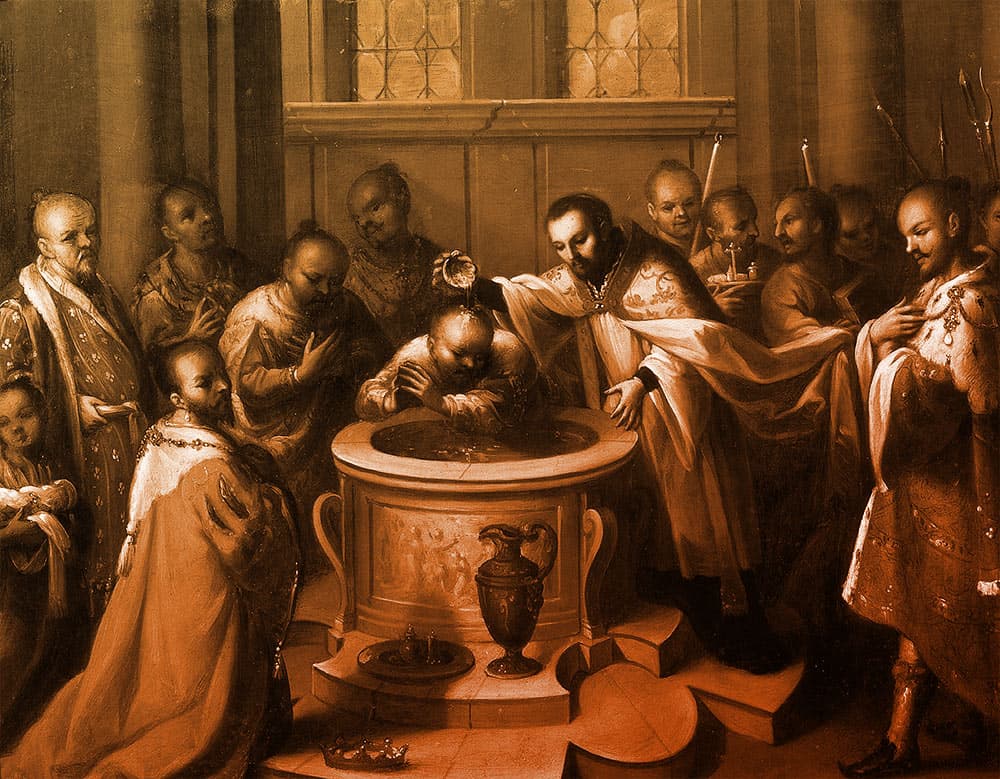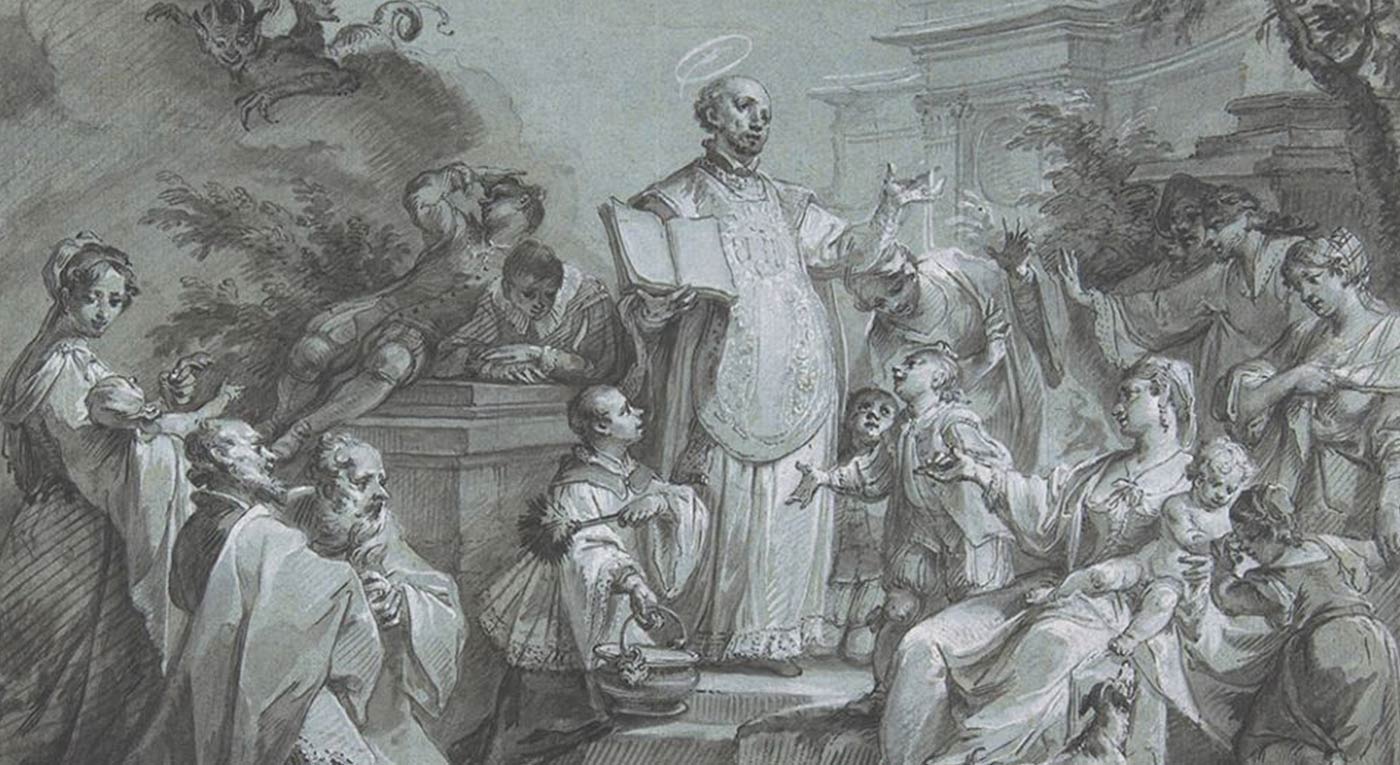
Daily Prayers


Probing Ignatian Depths
A Call to Conversion- IGNATIAN YEAR 2021-2022
The Ignatian year will last 14 months, from 20th May 2021, the date of Ignatius’ injury during the Battle of Pamplona, to 31st July 2022, the feast of Saint Ignatius. The theme of conversion is linked to the experience of the founder of the Society.
The Ignatian year is a call to allow the Lord to work on our conversion. We ask for the grace to be renewed by the Lord. We wish to discover a new apostolic enthusiasm inside ourselves, a new life, new ways to follow the Lord. That is why our theme for the year is to see all things new in Christ.
On a daily basis, this section of our website will share reflections and prayers about the Jesuit mission in Africa and Madagascar with the Ignatian Year theme as a pathway to deeper devotion and spiritual conversation. The intention is to amplify the Ignatian Year of renewal and transformation and to pray with the universal apostolic preferences
“The Society of Jesus goes back in its origins to the Ignatian experiences, which we will call to mind in the Ignatian year. It gives us a good opportunity to make known our spiritual root, that spiritual source that feeds and nourishes us in so many different ways and places. Deepening and renewing our own interior freedom and energy for the magis opens us to new and enriching perspectives. These can come from accompanying young people, from the hope that drives us to participate in the collective effort that seeks to heal the wounds of nature and prepare a better world for future generations.” Fr. General
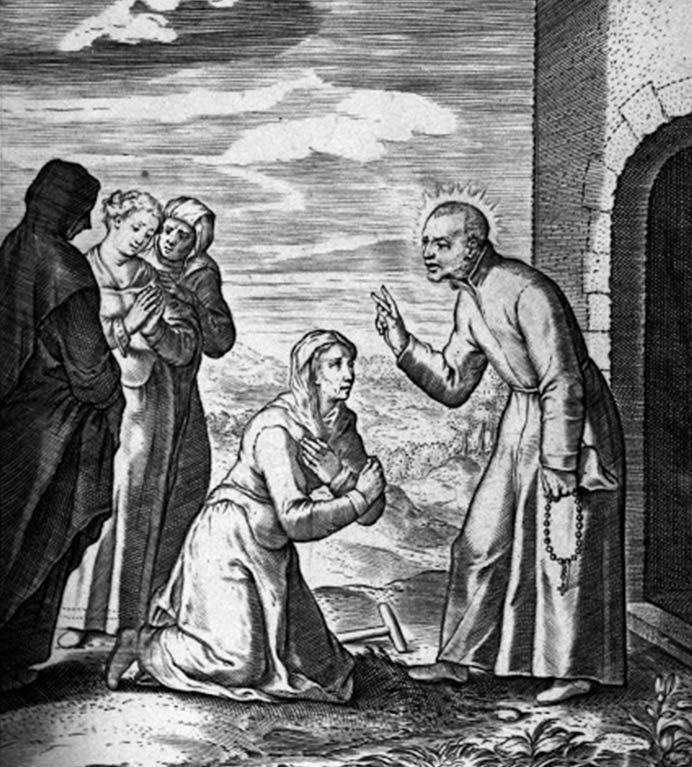
A Life Without Possessions
Reflection on the Gospel of Luke 12:15
Imagine what your life would be like if you had no possessions. Imagine that all you had was the clothing you wore and you went through life relying upon the generosity of others. Though, at first, this may seem like an irresponsible way to live, there are some who are called to a form of this life for a sacred reason. Those called to strict religious life are called to embrace the life of poverty, owning nothing themselves, for a reason. The reason is highlighted in this Gospel.
Too often in life we become consumed with our possessions. It’s true that material things can add “spice” to life. They can be fun, entertaining, comforting, etc. But the danger of becoming attached to the things of this world is that we begin to rely upon the pleasure they bring more than we rely upon the spiritual possessions which are of much greater value. It’s not that material possessions are bad, in and of themselves; rather, it’s that the spiritual possessions God wants us to obtain are of infinitely greater value.
Most are not called to live lives of material poverty, but all are called to live lives of poverty in spirit. This means that, though we live in the world, we are not to be of the world. We are to keep our hearts attached only to the greatest treasures of life: faith, hope and charity. When greed and love of material possessions draw us from these spiritual treasures, we must recommit ourselves to the discovery of their great value.
Prayer
Day 438 of 438
My Catholic Life
Lord of true riches, help me to always keep my heart set on the riches You bestow and to never settle for those things that can never fully satisfy me. I desire the wealth of Heaven, dear Lord, not the riches of Earth. Help me to live the spiritual poverty I am called to live so as to obtain all that You desire for me. Free me from greed and selfishness and help me to find true joy in Your holy will.
Reflection
“To see all things new in Christ”
-
Reflect, today, upon any struggle you have with greed.
-
If that does not sit well with you and if you find yourself immediately trying to justify your attachment to material things, then you may need this reflection more than you know.
-
The Lord wants to give you so much more than this world can offer you.
-
Do not make the choice to become attached to that which is “cheap” from an eternal perspective.
-
Strive to embrace those true riches that will remain with you forever.
-
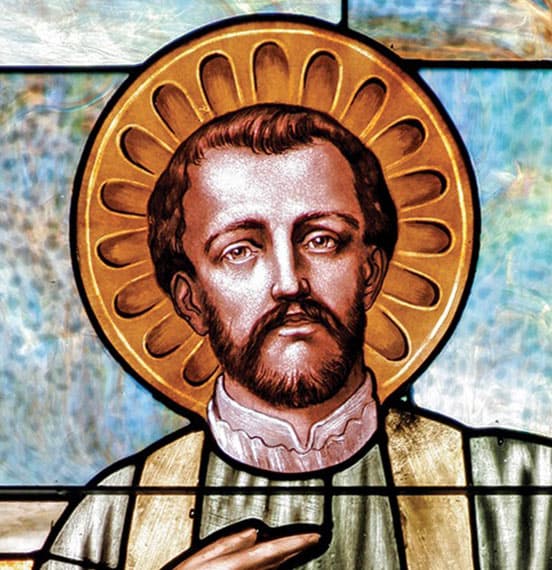
Archived Daily Prayers
Back to Calendar
Probing Ignatian Depths
The Novena of Grace
The Church has always rejoiced in the “great cloud of witnesses” 1 who are the saints.
These men and women, over the generations and in so many places, have shown what it is to live the Christian life, sometimes to the point of surrendering their own lives in martyrdom. Their earthly lives may have ended but their prayers continue in heaven.
The Church has long believed that the saints intercede on our behalf, asking God for the graces and blessings which we forget to ask for or for which we find no time to pray: “Their intercession is their most exalted service to God’s plan. We can and should ask them to intercede for us and for the whole world.”
Devotion to Francisco Xavier has always been immensely popular as he fires the imagination with his heroic travels to distant peoples and lands across the globe. This novena is nine days of prayer, in the company of St Francis Xavier, through the letters he wrote. As a Jesuit, Francisco underwent and then, in turn, led others through the Spiritual Exercises of his great friend St Ignatius Loyola. His writings reflect the spiritual insights and preoccupations of the Spiritual Exercises.
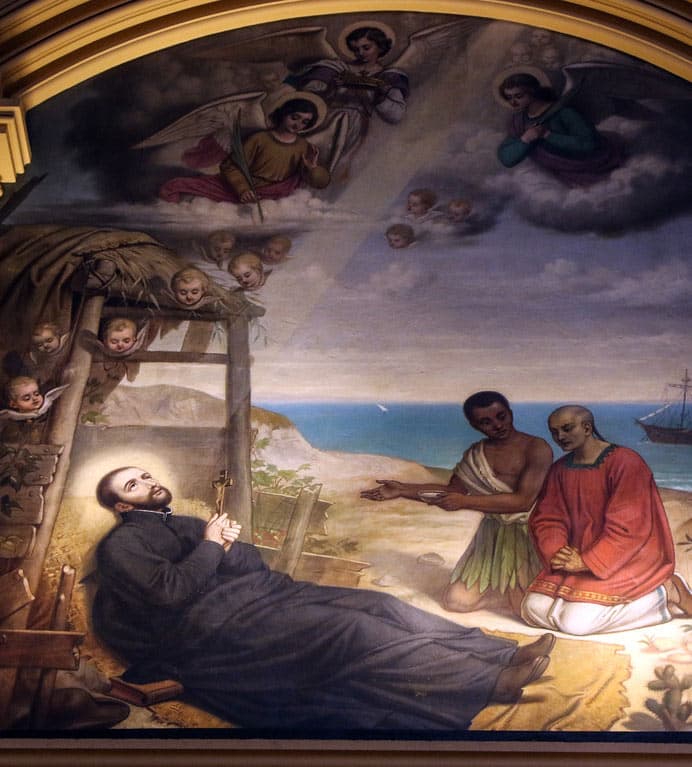
The present form of the Novena was begun in the seventeenth century by Fr Marcello Mastrilli SJ (1603-37). While working in Naples, he sustained serious head injuries in an accident. Prayers were offered to St Francis Xavier and Fr Mastrilli recovered.
In his own prayer, Fr Mastrilli heard the promise that whoever took time each year to complete the nine days of the Novena would ‘experience Francis’s protection and might hope with great assurance that any grace they asked of God would be granted, provided it be for their good and the glory of God.’
Fr Mastrilli is credited with recovering the body of Francis Xavier from Sancian Island, off the coast of China, and taking it to Goa where it remains today. Fr Mastrilli was himself martyred at Nagasaki in Japan on 17th October 1637 during the Tokugawa shogunate which had banned Christianity in 1614.
The Novena of Grace is traditionally prayed either from 4th to 12th March (the day Francis was declared a saint in 1622) or from 25th November to 3rd December (St Francis Xavier’s feast day). But it is a devotion that may be prayed at any time.
Prayer
Day 1
Letter to King John III of Portugal from Malacca in Malaysia
“May our Lord increase the days of [your] life for many years, and may he grant you to feel, in this present life, his most holy will and the spiritual strength to fulfil it, so that you do and accomplish that which, at the hour of your death, you will wish to have done.”
Reflection
Letter to King John III of Portugal from Malacca in Malaysia 23rd June 1549
-
What are the things in my life of which I am most proud?
-
Which of these things will I be most pleased to place before God at the close of my life?
-
What do I need to do more of, or less of, if I am to present my best self to God my Lord?

Select Payment Method
Pay by bank transfer
If you wish to make a donation by direct bank transfer please contact Fr Paul Hamill SJ treasurer@jesuits.africa. Fr Paul will get in touch with you about the best method of transfer for you and share account details with you. Donations can be one-off gifts or of any frequency; for example, you might wish to become a regular monthly donor of small amounts; that sort of reliable income can allow for very welcome forward planning in the development of the Society’s works in Africa and Madagascar.
Often it is easier to send a donation to an office within your own country and Fr Paul can advise on how that might be done. In some countries this kind of giving can also be recognised for tax relief and the necessary receipts will be issued.


